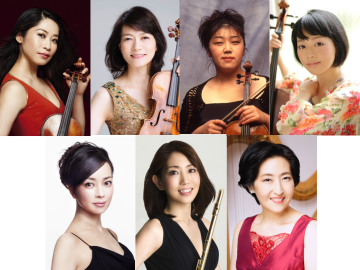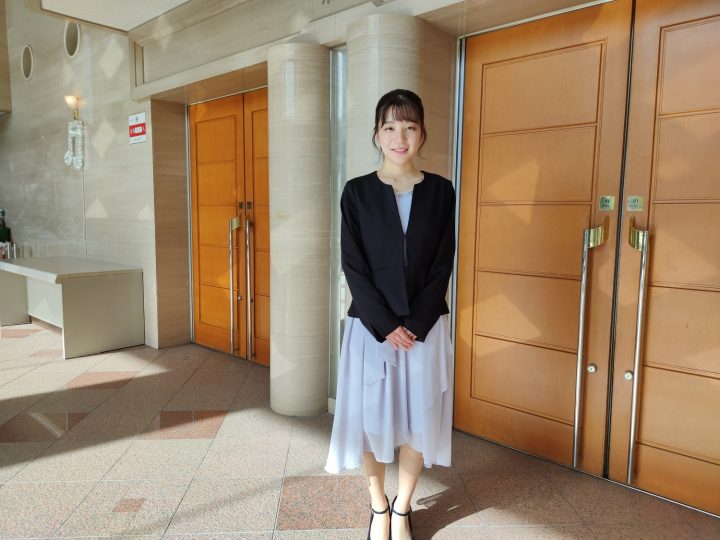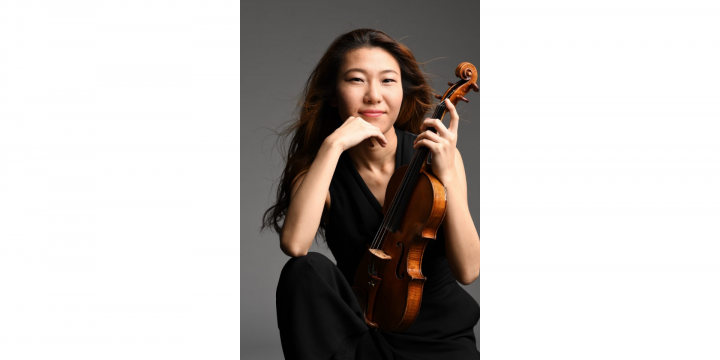Mozart = A "fun" and "scary" ephemeral figure
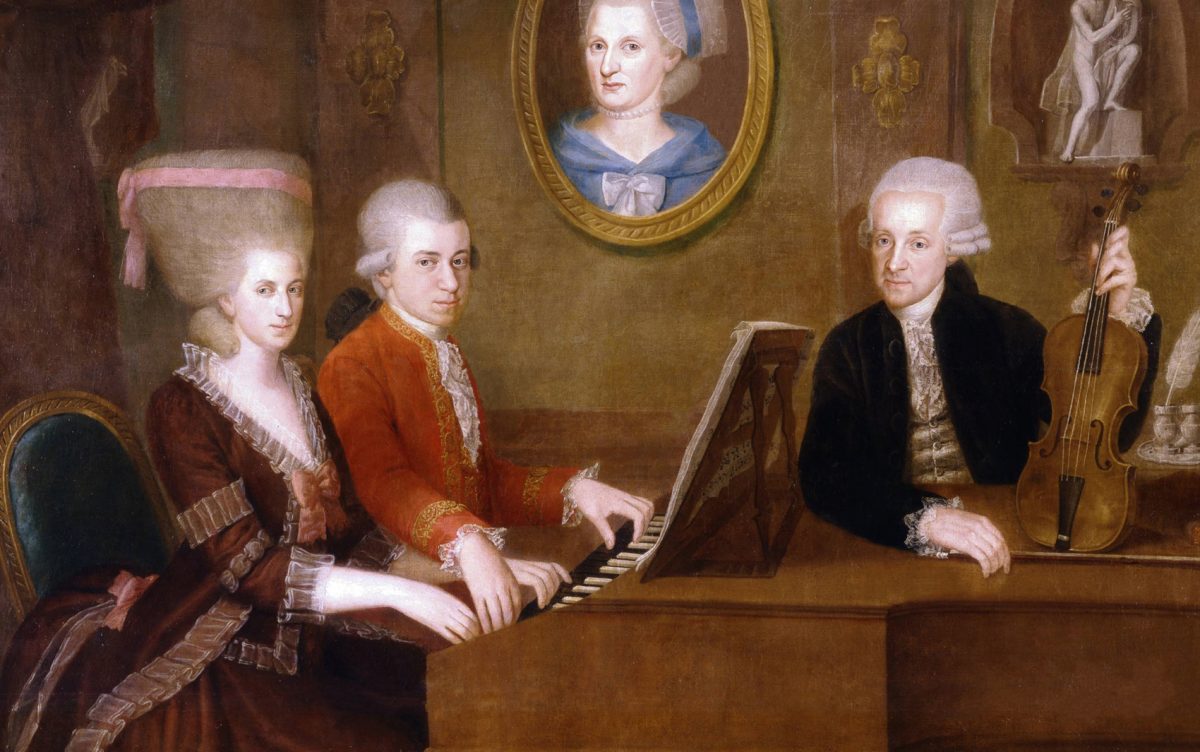
Enjoy casually ! Life with concerts
File.9 Mozart
Mitsuzaburo Mori ( music writer)
Every year at the end of the year, I comb through concert information to find an exciting concert where I can listen to Mozart in the new year.
The classic path for classical music fans is to see the ballet "The Nutcracker" at Christmas, listen to Beethoven's "Ninth Symphony" at the end of the year, and watch the Vienna Philharmonic New Year's Concert on TV while feeling tipsy during the New Year.
But for some reason, in my case it's Mozart.
One simple reason is that at the beginning of the year, I want to be soothed by the light and refreshing music of Mozart rather than heavy music, but above all, it also has a noble meaning of being able to experience Mozart's ``genius'' and, as a music fan, to continue to seriously engage with music this year as well.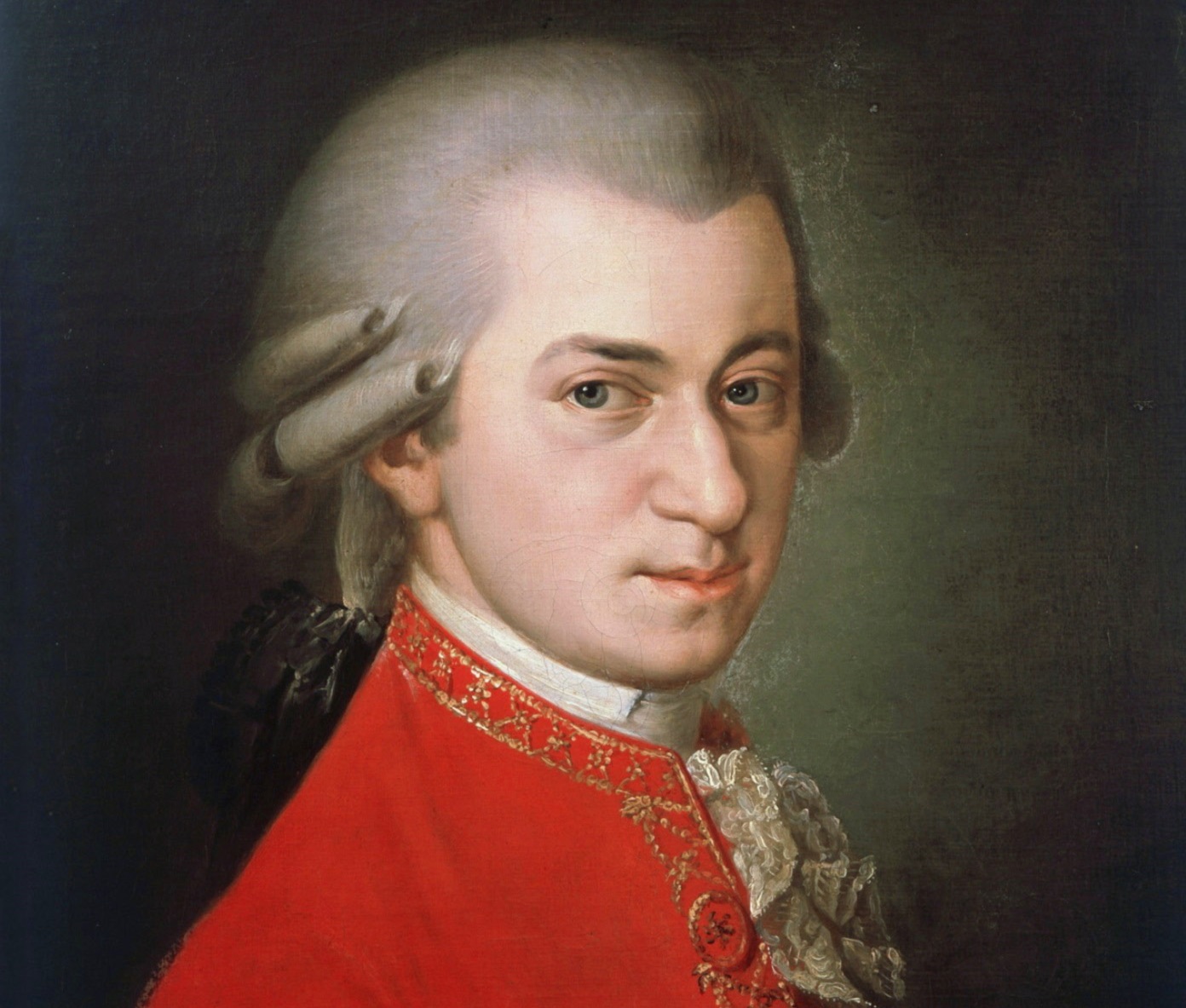
Wolfgang Amadeus Mozart.
A great composer born in Salzburg, Austria in 1756, who died in Vienna at the young age of 35, he composed over 600 works, ranging from operas to instrumental pieces and sacred music. There is even an anecdote that while writing notes on a sheet of music, he was composing a different piece in his head.
Needless to say, the song is absolutely beautiful.
And his personality is unrestrained to the fullest.
He liked to tell jokes that were "not very tasteful," and in his later years, his income decreased and he developed a tendency to spend money, so letters have been left behind in which he asks for loans.Incidentally, there also seem to be letters left behind that are full of "not very tasteful words."
"Why did God give such an ordinary man such extraordinary talent?"
When I watch the play and film "Amadeus," which depicts the jealousy and conflict of Salieri, the devout Vienna court conductor, I get a good understanding of Mozart's life, even if it is a bit exaggerated, and it's funny. Or rather, a little surprising.
The masterpiece "Amadeus" is, of course, fiction, but it is true that there were rumors at the time that Salieri had poisoned Mozart, and it is said that this rumor haunted him until his death.
Poor Salieri, he has just discovered the "truth of music"!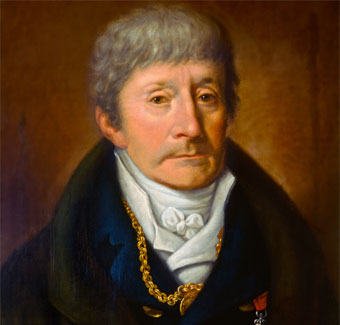
*Antonio Salieri (1750-1825)
The "genius" Mozart.
It's hard to put that music into words.
Mozart was said to compose music "as if breathing."
The composition is extremely simple. It follows the grammar of what is now called "classicism," established by his predecessors Haydn and others, and there is little sense of Beethoven's desire for innovation or his struggle for self-expression. In fact, there are hardly any traces of rewriting the score.
Light, refreshing and incredibly beautiful music.
But that's more than enough already...
For example, the second movement of Piano Concerto No. 23 in A major.
A quiet, melancholic piano solo is followed by an orchestral ensemble that sounds as if it comes from somewhere far away. Immediately afterwards, the piano plays a mysterious, indescribable melody...
Just when you start to feel uneasy, a somewhat cheerful phrase comes on, and the opening melody repeats.
"Music is a temporal art." But when I listen to this piece, I get the opposite feeling: it feels as though Mozart is using seven minutes to depict a single moment.
Various feelings of anxiety and faint hope suddenly cross your mind.
Mozart does not give us a beginning, development, climax, or conclusion. *This is a recommended album featuring Mozart's Piano Concertos No. 23 and No. 26. Gulda (piano) & Royal Concertgebouw Orchestra (conducted by Harnoncourt)
*This is a recommended album featuring Mozart's Piano Concertos No. 23 and No. 26. Gulda (piano) & Royal Concertgebouw Orchestra (conducted by Harnoncourt)
Take the opera "Don Giovanni," for example.
The "victims" pursue the womanizer and murderer Giovanni. It's strange, but you start to wonder if they are in love with the protagonist, even though they hate him and want to kill him.
There is a saying that is often said about piano music.
"Mozart is too easy for children, but too difficult for adults"
There is nothing difficult about it that would improve a child's technique, but because of its simplicity, the innocent Mozart can be ruined if the evil thoughts of adults get involved.
In fact, I have experienced such performances many times.
Here's a CD: the violin sonata, K30, composed by Mozart when he was 10 years old. It's a wonderful performance by Podger and Cooper.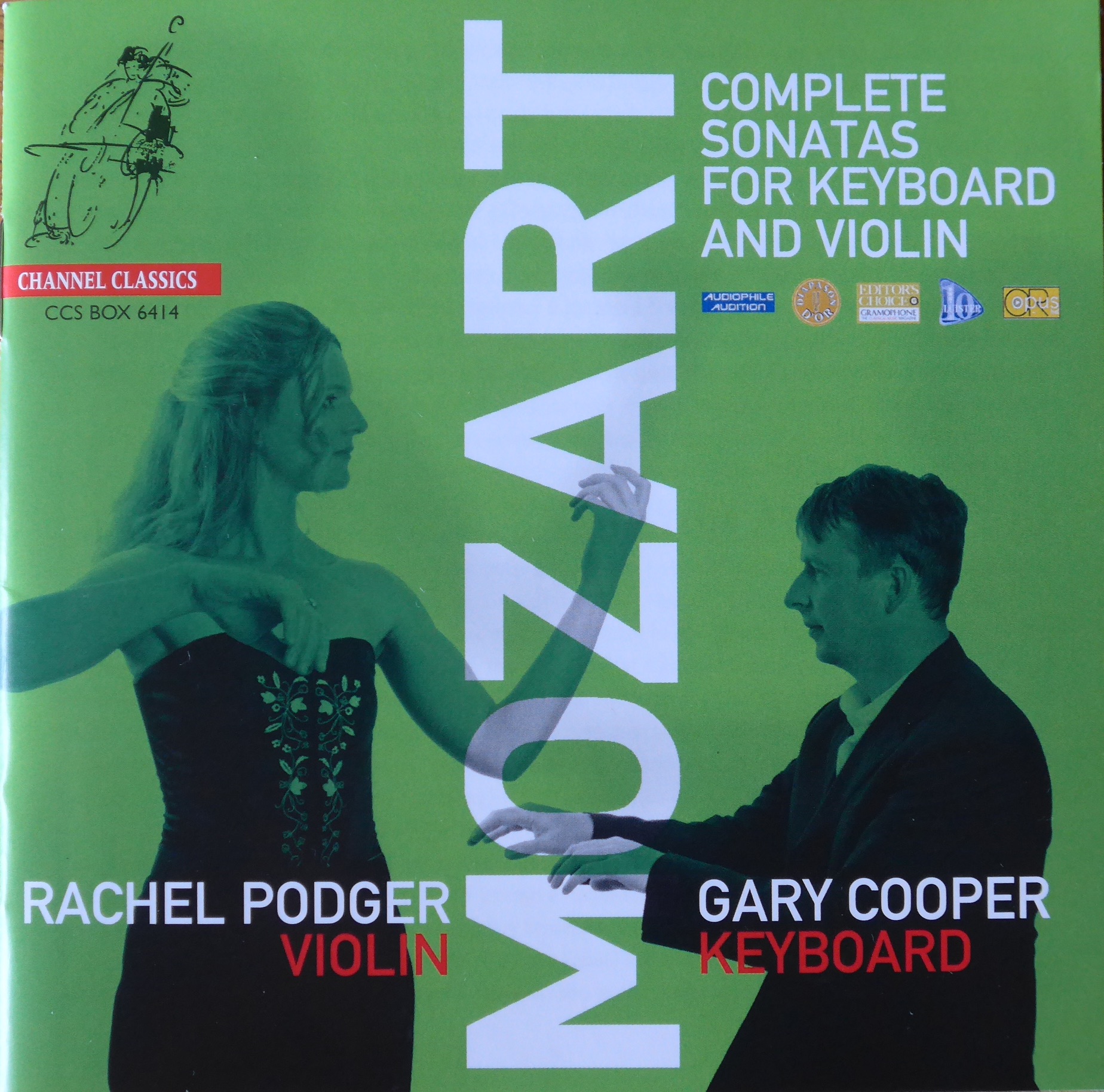 The "Adagio" movement is a beautiful piece with a striking, generously singing violin. There is no "technique" that a mature Mozart would use to inspire, but what is the sad, almost detached atmosphere that can be heard in the background? It is never negative, but rather gently enveloping.
The "Adagio" movement is a beautiful piece with a striking, generously singing violin. There is no "technique" that a mature Mozart would use to inspire, but what is the sad, almost detached atmosphere that can be heard in the background? It is never negative, but rather gently enveloping.
Mozart, an innocent boy who is said to have told Marie Antoinette, who was seven years old at the time, "When you grow up, I'll marry you," ended up composing music like this. Or perhaps it would be better to say that someone made him compose it.
Ah, the "natural talent" that Salieri was jealous of.
There is a "demonish" fear in Mozart's music.
It's an expression often used by music connoisseurs.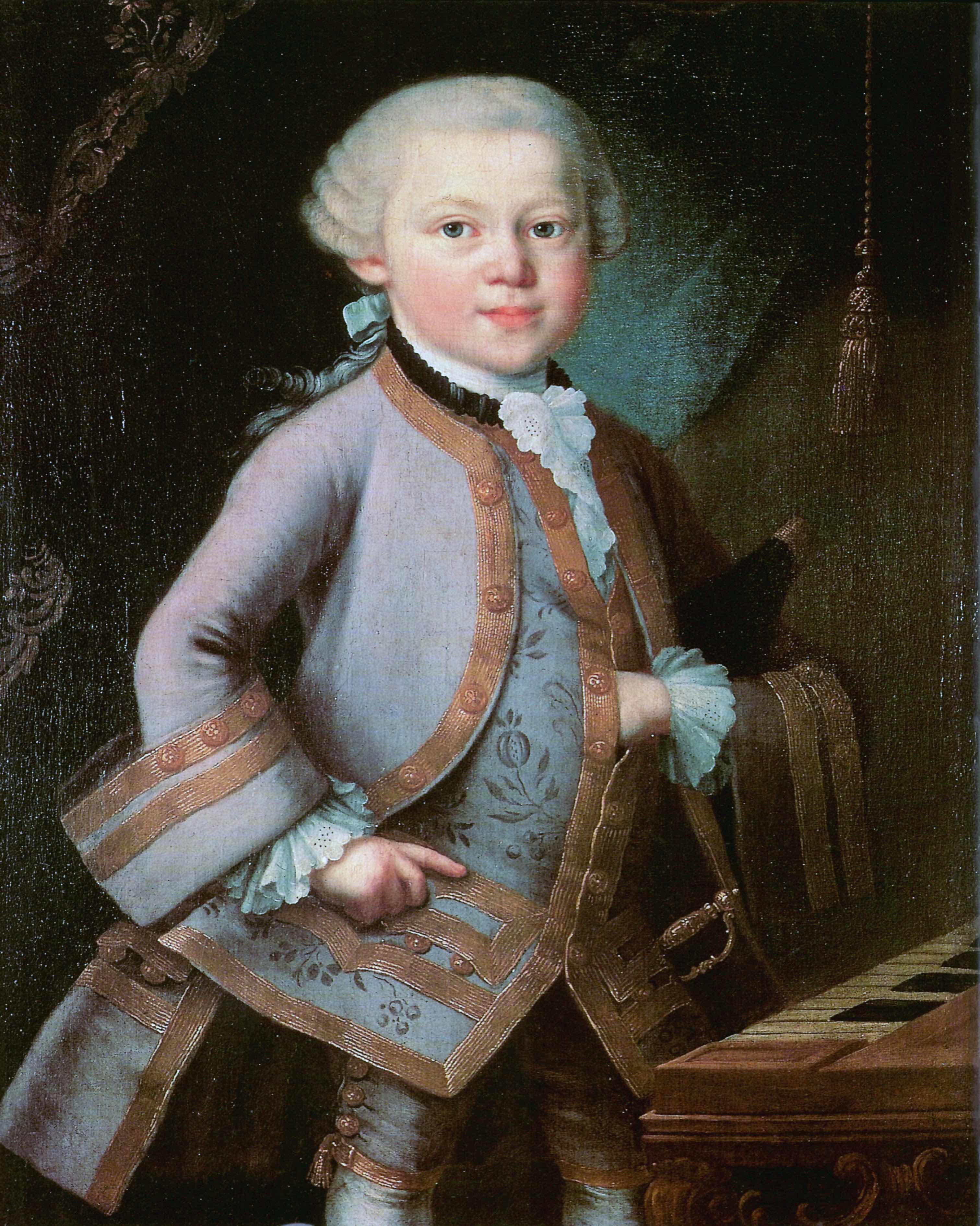 * Mozart at age 6 in formal attire
* Mozart at age 6 in formal attire
Emotions that lie dormant deep in the listener's heart, that listeners are usually unaware of, truths that they don't want to acknowledge yet... The song gives a glimpse of such troublesome things, briefly touches upon them, and then, without a trace of knowledge, returns to a beautiful, dreamy state.
What kind of mysterious entity is making people create music like that? That's what's scary.
Is it something far away, or is it within us?
So that's it.
Here are two Mozart concerts we recommend for the beginning of the year.
New Year's Concert at Philia Hall on Saturday, January 11th.
Master piano player Yukio Yokoyama performs three piano concertos with members of the NHK Symphony Orchestra.
The above-mentioned No. 23 will also be performed.
Still, three pieces by Mozart alone is amazing.
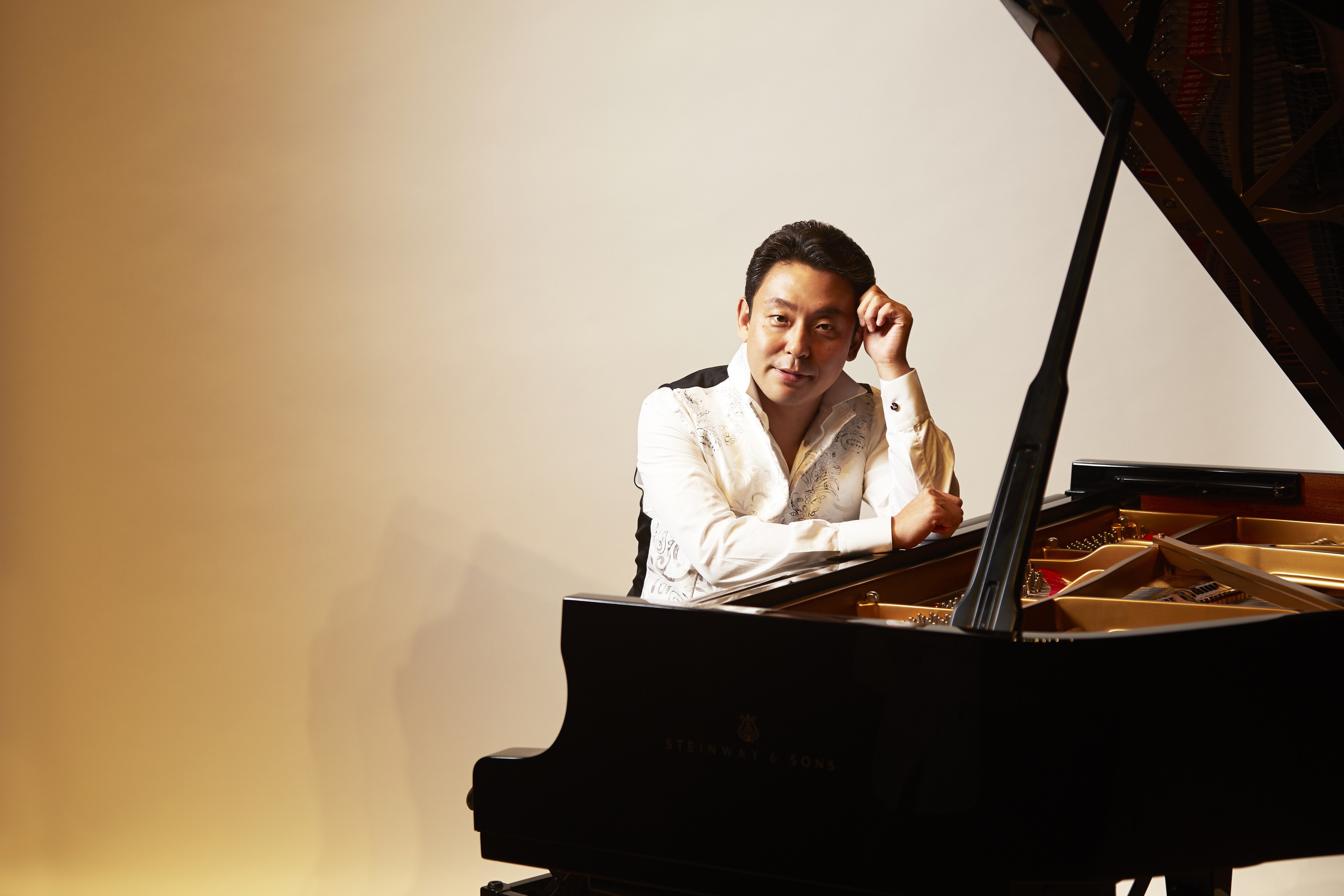 (C) R Infini
(C) R InfiniThis event has now ended.
"New Year's Concert 'Mozart Feast'"
[Date and time] Saturday, January 11, 2020, 15:00 start
[Venue] Philia Hall, Yokohama Aoba Community Cultural Center
[Performance] Piano: Yukio Yokoyama, Orchestra: Chamber Orchestra by members of the NHK Symphony Orchestra (Concertmaster: Hiroyuki Yamaguchi)
[Price] S 7,500 yen, A 6,500 yen
For more details, click here
And then there's the "Mozart Matinee" at the Musashino Kawasaki Symphony Hall.
This is Saturday, January 18th.
Enjoy works from his youth, performed and conducted by violinist Shunsuke Sato, now one of Japan's most respected musicians.
This is a great opportunity to listen to the works of Johann Sebastian Bach, the second son of Johann Sebastian Bach, who influenced Mozart.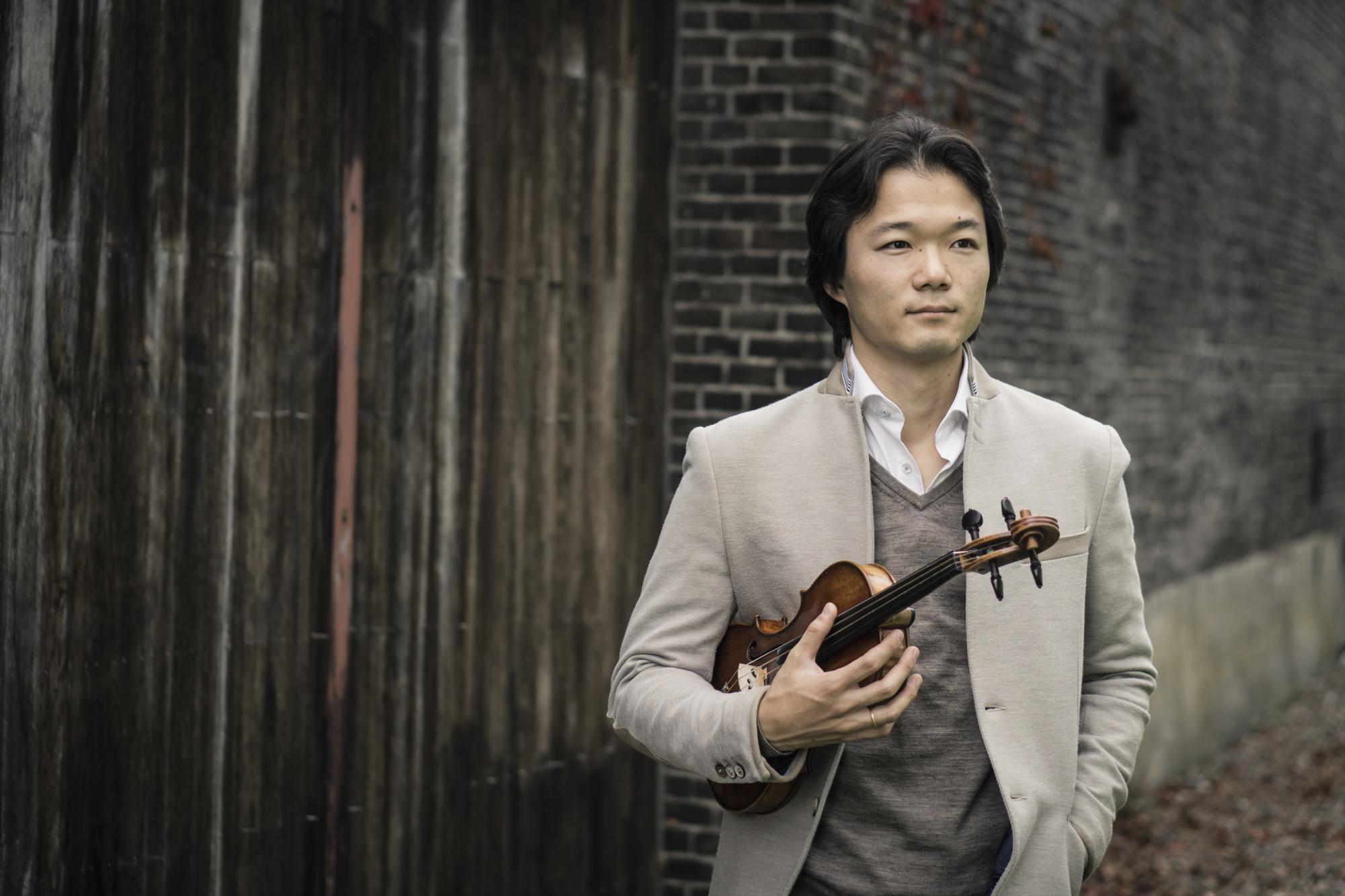
©Yat Ho Tsang
This event has now ended.
"Mozart Matinee No. 39 "
[Date and time] Saturday, January 18, 2020, 11:00 start
[Venue] Muza Kawasaki Symphony Hall
[Performers] Violin: Shunsuke Sato (pianist and conductor), Orchestra: Tokyo Symphony Orchestra
[Admission] Adults 3,500 yen, U25 (elementary school students to 25 years old) 1,000 yen, Friends' Association 3,150 yen
For more details, click here
It's not scary if we all listen together!
Now, enjoy some Mozart!
